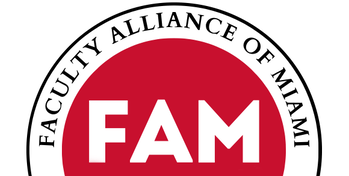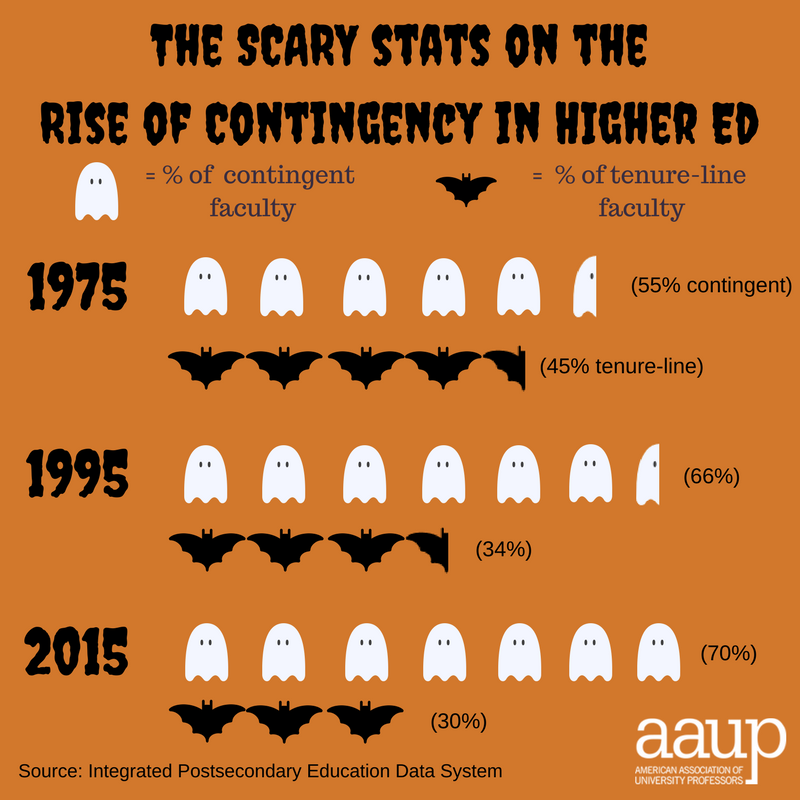First, what’s contingency? As defined by the GAO* and AAUP, “contingent faculty” is an umbrella term encompassing all non-tenure-system faculty — that is, faculty who, to different degrees, experience precarity. Contingent faculty teach about 60% of the credit hours taught at Miami.
Contingency matters a LOT to tenure-line faculty. Why?
- Reduction in TT numbers leads to increased service loads. Feeling run off your feet? So are most of your tenured colleagues. More service means less time for research and teaching.
- Contingents have no voice or vote on campus. As their numbers increase, faculty influence on the management of the university dwindles. More and more top-down decisions are made (if you have been at Miami for awhile, you will recognize the trend). Faculty know-how is essential to the design and protection of Miami’s educational mission—and when shared governance declines, so does that mission.
- Reductions in state funding and market-driven, efficiency-oriented thinking mean that administrative decisions are driven almost entirely by revenue. Tenure-line numbers decrease — and lower-paid contingent faculty numbers increase — with each budget crunch, whether it’s real or rumored. Afterward, the new ratio becomes the new normal.
- Academic freedom is diminished and threatened when, as is the case at Miami, a majority of faculty don’t have employment due-process protections. (For more on academic freedom at Miami, see here.)
What are the end results of contingency?
An insecure labor force, fewer opportunities for research, and lack of academic freedom in academia is harmful to students, faculty, and citizens. Universities’ educational mission is increasingly restricted. Free inquiry declines. When we emphasize career preparation at the expense of critical thinking, we deprive citizens of the tools they need to understand and solve the world’s problems.
What to do?
Tenure-line faculty can try to improve their conditions without seeking solidarity with contingents. But unless TT and non-TT faculty join together and organize, budget pressures and reduced faculty power mean that TT numbers could continue to erode until almost all faculty (if not all faculty) are contingent.
AAUP’s One Faculty movement explains that “the best way to halt the erosion of tenure and to extend economic security and other rights to contingent faculty is by organizing and using our collective strength—working together in solidarity across faculty ranks…The participation of all faculty in shared governance strengthens the faculty’s voice.”
We can fight contingency and win. Become part of AAUP’s One Faculty Miami movement by joining AAUP and becoming active in Miami’s AAUP Advocacy Chapter. And get to know your local VAPs and adjuncts!
—
*The GAO (United States Government Accountability Office) did a report for Congress on contingency in higher education in October of 2017—read highlights or the full report.


Leave a Reply